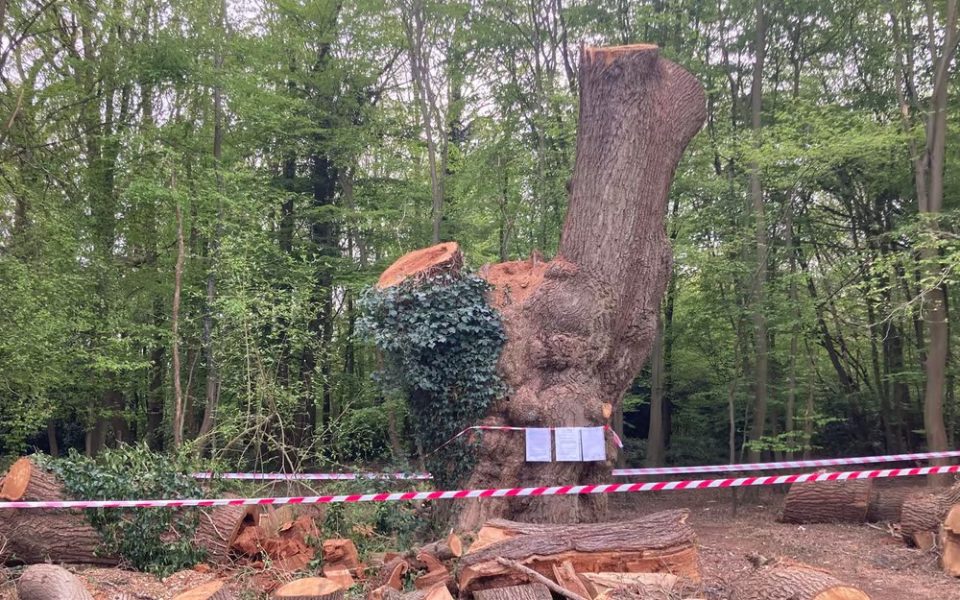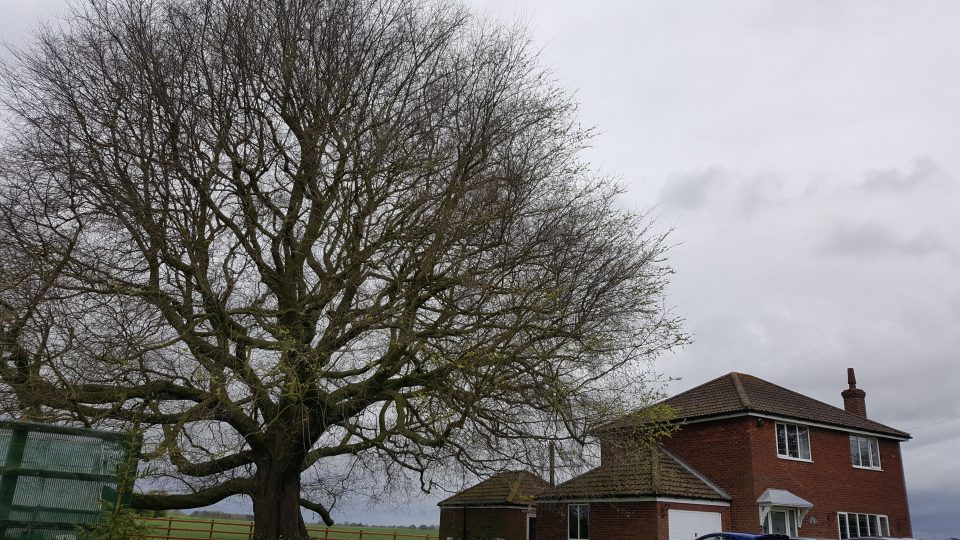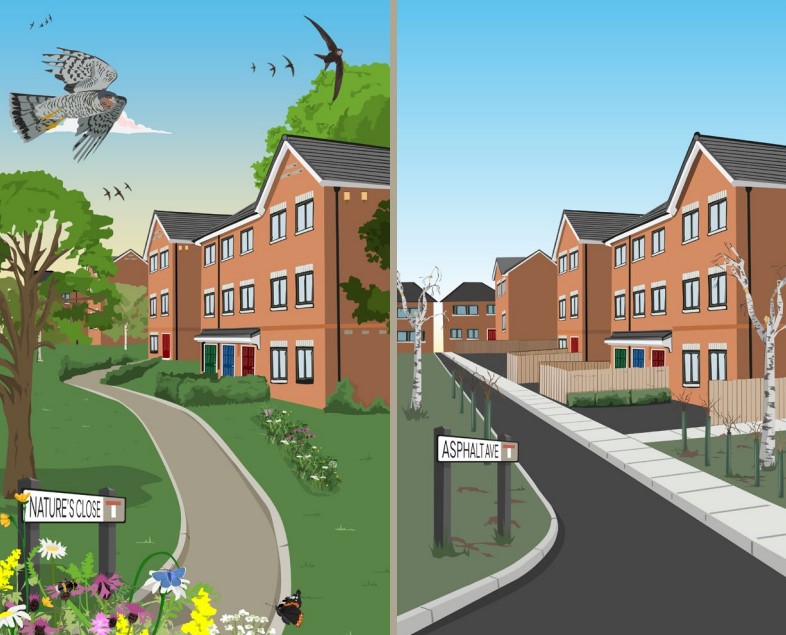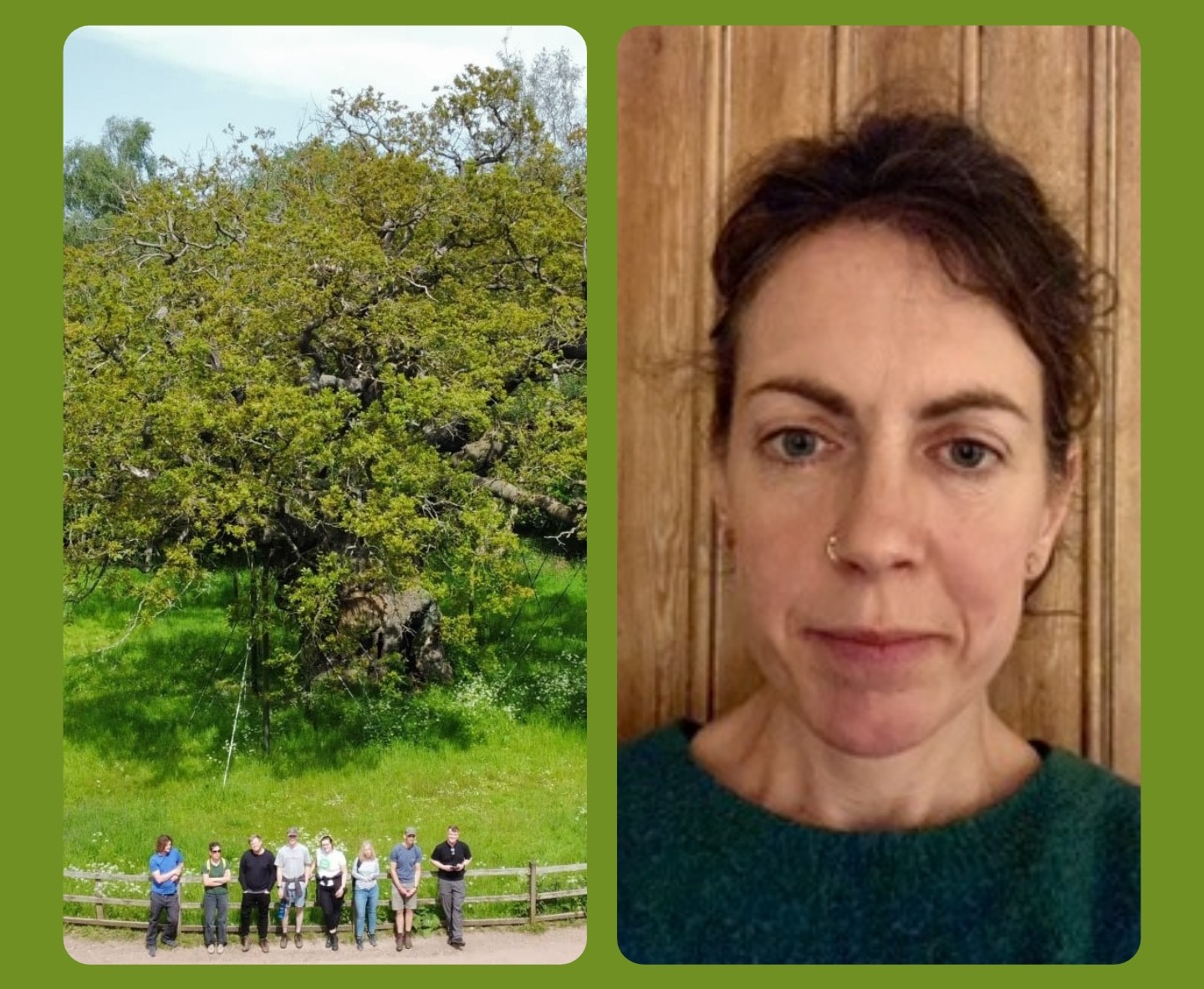
Introducing Sophie Beckerman: New Team Member
17th August 2023
ATF Trip to Fountains Abbey, North Yorkshire
9th October 2023Carrots not Sticks: Why we should reward people for having trees.
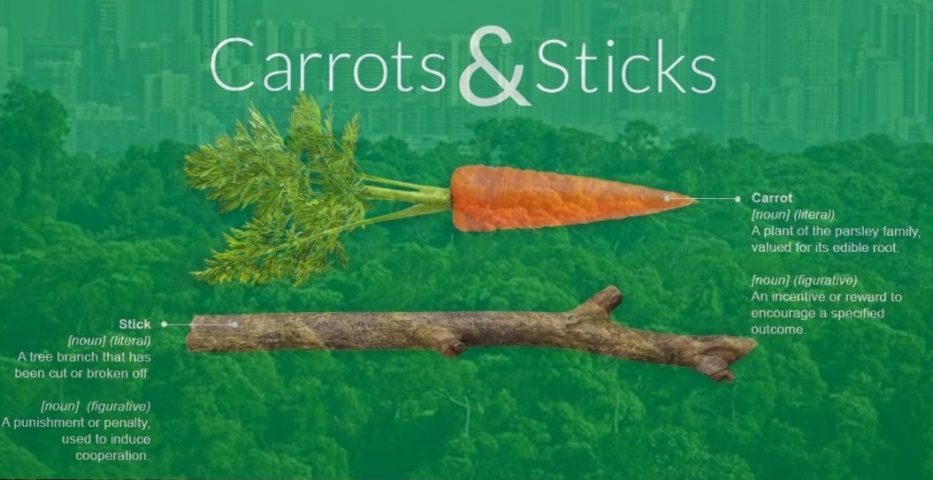
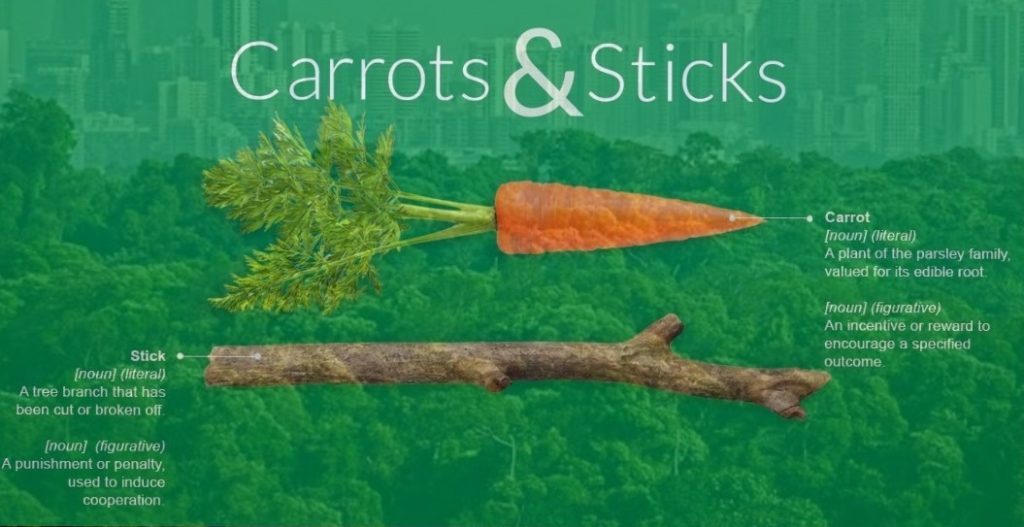
The phrase “carrot and stick” is a metaphor for the use of a combination of reward and punishment to induce a desired behaviour or outcome. In terms of arboriculture and urban forestry, the desired behaviour or outcome is to maximise the countless environmental and societal benefits urban trees provide.
Street and park trees account for only small fraction of an urban forest. The public sector owns only 8% of England, with most land being owned by private individuals, companies and corporate bodies. The importance of trees near to where people live cannot be overstated and as such, to really have an impact, trees need to be planted and managed on privately owned land.
In the UK, an important way of protecting trees on privately owned land is via Tree Preservation Orders (TPOs), which are a statutory mechanism by which trees, groups of trees or woodland can be protected. However, TPOs do not reward a tree owner to plant and manage trees, in some respects, they could been seen to punish the tree owner while rewarding those nearby without trees.
When a TPO is made it becomes a criminal offence to carry out tree pruning or destroy or damage the tree (subject to certain exemptions) without the permission of the relevant Local Planning Authorities. Such an offence can be tried in either the Magistrates Court or the Crown Court and for anybody found guilty of such an offence, the legal and financial consequences can be substantial.
When a TPO is in force, the owner of the tree must deal with the associated risk of harm from the tree, to people and property, and accept the associated constraints to land use and potential development potential of a site, due to the protected tree. However, the amenity and environmental benefits the tree provides are largely enjoyed to those in the surrounding neighbourhood.
To encourage tree planting and maintenance on private land, there is a need to explore incentivisation through a system of rewards. If TPOs are the stick, what could be the carrot for encouraging trees to be planted and managed on private land?
The Carrot: Why reward people for having trees.
In contrast to the restrictive measures of TPOs, incentivising tree planting and maintenance with rewards offers a positive approach to increasing the tree cover on private land. By providing individuals and companies with benefits, both financial and non-financial, for their tree-related efforts, we can foster a culture of appreciation, participation, and responsibility towards the treed environment.
Trees contribute to improved mental and physical wellbeing. Research has shown that proximity to green spaces can reduce stress, enhance recovery times, and bolster overall mental health. By rewarding tree planting and maintenance, governments and civic bodies can create healthier and visually appealing surroundings for people to enjoy.
By offering rewards for tree planting and maintenance, governments and civic bodies can encourage individuals and companies to actively contribute to climate change mitigation and maintain wildlife-friendly environments. Tree planting and maintenance initiatives can create opportunities for collaboration, fostering social connections and a shared appreciation for nature. Rewards can further enhance the financial incentive for landowners to actively contribute to tree planting initiatives.
Reward people with what?
Some examples of government or civic rewards that could be given to individuals and companies who contribute to tree planting and maintenance on private land are provided below. It’s important to note that the specific rewards and incentives may vary depending on local laws, regulations, and policies. The examples provided are meant to serve as ideas and can be adapted or tailored to suit the specific needs and context of any given region or country.
1. Tax incentives: The government could offer Council tax credits to individuals or business rates breaks to companies that actively engage in tree planting and maintenance on their private land. This can help offset the costs associated with tree planting and encourage greater participation.
2. Grants and funding opportunities: Governments and civic organizations can provide grants and funding opportunities specifically designed for tree planting and maintenance projects on private land. This can help individuals and companies cover the initial expenses or ongoing costs related to tree planting initiatives, possibly with a long-term agreement to maintain the ttrees as they mature.
3. Recognition programs: Establishing recognition programs can encourage individuals and companies to engage in tree planting and maintenance efforts. The government or civic organizations can publicly acknowledge and celebrate the achievements of those who have demonstrated exceptional commitment, in a similar way to the Royals honours system, which can boost their reputation and encourage further participation.
4. Certification or labelling schemes: Governments can create certification or labeling schemes that recognize individuals and companies for their tree planting and maintenance efforts. This can help distinguish their products or services in the market as environmentally responsible, leading to increased consumer preference and support.
5. Reduced energy bills. Governments and civic organizations, or larger energy suppliers can provide discounts on energy bills to individuals and companies undertaking tree planting and maintenance. This recognises the wide ranging impact trees have on modifying urban heat impacts and reducing storm water runoff impacts and could enhance their capacity to successfully undertake and sustain tree planting initiatives on private land.
6. Collaborative partnerships: Governments can establish partnerships with businesses, non-profit organizations, and community groups to collectively promote and support tree planting and maintenance efforts. This can include joint publicity campaigns, sharing resources, and collaborative projects, fostering a sense of shared responsibility and encouraging participation.
7. Access to resources and materials: The government or civic organizations can provide access to discounted or subsidized tree seedlings, tools, equipment, and other necessary materials for individuals and companies engaged in tree planting and maintenance. This can help reduce the financial barriers associated with starting or maintaining tree planting initiatives.
Conclusion: Beat them with carrots…
Tree Preservation Orders play a vital role in protecting our existing tree population, yet the associated risk and constraints this poses to the tree owner has the possible unforeseen negative consequence of a reluctance to invest in tree planting or allowing trees to mature. TPOs use the Law to penalise tree owners. Conversely incentivising tree maintenance on private land offers an approach rooted in positivity and collaboration. By introducing government or civic reward programs, it would be possible to harness the collective potential of individuals, companies, and communities to create a more sustainable and resilient environment. These rewards not only benefit the surrounding neighbourhoods and the wider society but also those directly involved in planting and managing trees on their land.


